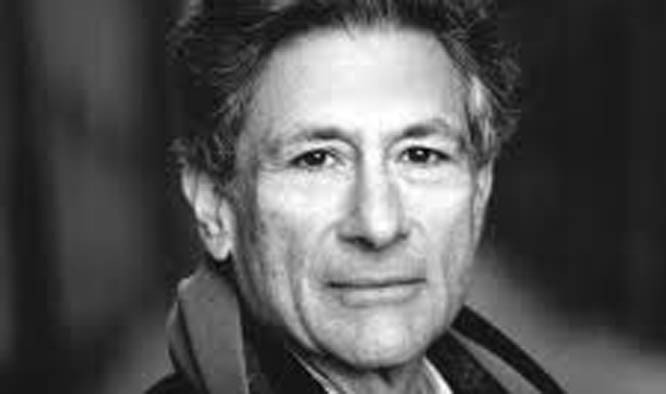
With the deconstruction of the modernist paradigm

In Pakistan, higher education is stuck in archaic structure of knowledge production. We are still fiddling with modernism paradigm which has prevented us from seeing things from newer angles. Most of us therefore cling on to simplistic theories and notion.
In the international academic scenario, the academia operates differently. Over there, ‘simplistic’ is an ascription that any serious scholar of Humanities or Social Sciences hates to be attributed to him or herself. Instead, they aspire to ‘problematise’ an idea or concept. Simplified assertions are seen as anachronistic and therefore inadequate to encompass the reality in totality. These days, statements, inferences or conclusions are problematised so that it may capture the relatively true reflection of the complex nature of reality. The underlying idea is that ‘reality’, perceived or otherwise, is essentially a multi-faceted phenomenon.
Many intellectual currents and cross currents intersect each other and give shape to a certain situation which is multilayered and convoluted in its real essence. ‘Simplistic’ is a mere outer crust of the ‘real’ which if dug deeper will be quite opposite to it. One ‘object’ of study could have multiple constituents, or it is supposed to have imbibed influences from far and wide. These influences, no matter how insignificant they might seem, must not be ignored while framing an argument.
In the days prior to post-modernity, intellectual pursuits mostly went from the complex to simple but since 1970s, that pattern has been inverted. Or, in other words, in this epoch when post-modernist epistemology has almost redefined the already existing ideologies with modernist or even pre-modernist overtones, scholarly pursuits have changed gear from ‘simplistic’ to ‘problematic’. That shift has necessitated the employment of theory to get to the very crux of a complex situation.
It is significant for modernist formulation of knowledge to be contingent on the conglomeration of verifiable facts, arranged in such a sequence whereby some conclusion can be deduced. In that particular case, primacy is accorded to the ‘fact’ as an objective reality and, therefore, a primary constituent of knowledge. That was largely because of the ascendancy of science, which located the determinant of reality outside the figure of a ‘human’. The verifiable ‘fact’ was advanced as the source of knowledge.
Social Sciences and historical studies both were profoundly impacted by such a formulation, which began with the renaissance. Interestingly, the disciplines of Social Sciences like sociology, anthropology or even political science were the creations of the modernist era. Even history found an entirely new incarnation by the 18th century. A tenuous but pertinent question cropped up regarding the determination of the veracity of the ‘fact’ in social sciences and humanities.
Various scholars like Edward Said referred to the politics of knowledge creation with the purpose of legitimising the hegemony of the Western powers over the non-west. The era of modernism had allegedly churned out a litany of meta-narratives which re-enforced the hegemonic structures benefitting the elite(s) and the imperialists. With the onset of post-modernity, the primacy of the fact as an objective reality was contested and substituted with human subjectivity as the fundamental category of knowledge creation.
Thus modernism and all its attendant epistemic categories were either rendered irrelevant or they had to re-invent themselves in the light of newer realities. As a consequence, objectivity gave way to subjectivity as the primary determinant of reality (you may read it as the ‘Truth’). The neglected or marginalised voices found at least some space in the post-modernist knowledge system. It was an attempt to bring about ‘inclusivity’ while creating knowledge.
Ever since the days of Cartesian philosophy (the philosophy which was originated by Descartes) religious studies were relegated as an insignificant branch of knowledge. That trend continued throughout with slight change of emphasis. Cartesian philosophy had earmarked three branches of knowledge -- mathematics, physics and metaphysics -- in which one could hope for sure and certain results. With the deconstruction of the modernist paradigm, religious studies have re-asserted itself as a viable discipline.
One may aver that the resurgence of ideologies like Hindutva or Islamic fundamentalism is the partial outcome of that development. But the flip side of that inference seems equally important. Religion as a subject of study has broken loose from the incarcerating girdles of epistemic isolation. Scholarly investigation has generated an alternative paradigm, different from the one advanced by the clergy. Thus, as an academic discipline, Religious Studies has become far more relevant than before. The fundamentalist streak is gradually receding because the academic interpretation of religion by the university academic calls for the social accommodation that religion must strive towards. In the current situation, religion(s) has no other option but to pluralise their edicts and injunctions, and to come out of their monolithic mode.
The other change, which is quite discernible in the current academic scenario, is the movement from unity to multiplicity. It is analogous to the point made earlier about the change from simplistic to problematic. The concept of singular truth was exploded, and multiple truths got wider currency. Thus, mega narratives were severely contested which opened new vistas of understanding.
In societies where nation state was in embryonic form and empire system had been facing a steady erosion, the phenomenon of nationalism started fostering (or manufacturing) a sense of collectivity among groups of people, by deploying various symbols. That emphasis on the collectivity discarded the relevance of an individual. Nazism and fascism were the obvious exemplifications of such a trend. But in the wake of the Second World War, the paradigm started shifting in the favour of ‘individual’.
That was like a push which culminated into the movement of 1968, which revolutionised the epistemic structures. New interpretations were carried out. Plurality with the role of the individual vis-a-vis collectivity got primacy. One wishes that all that is presented in this article is properly reflected on and critiqued so that the debate is carried forward.